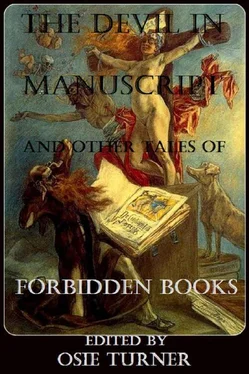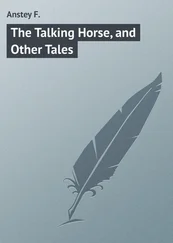“Many Murders” set the whole literary world agog for several months. Critical articles concerning it appeared in all the leading newspapers and magazines. It is to be noted that none of these referred to it as an average work of fiction. No, this volume of sketches was called a masterpiece or else the sensational nightmare of a disordered brain.
Soon the public became excited and bought the book by the thousands, thereby proving that Martin had been right when he had said that his stories would prove popular. Sir Vivian Gerard wrote an article for one of the periodicals in which he claimed that it was the first classic to become a bestseller immediately after publication.
Farrington kept me well posted as to the success of Martin’s book. Not contented with winning his bet, he had an irritating way of gloating over my discomfiture. If “Many Murders” had been his own work, he could not have taken a greater pride in its reception by the world.
He would drop into the studio of an evening with a laudatory criticism of the book. “Well, when will you acknowledge that you have lo3t the other bet too, Smithers?” he would ask.
“What other bet?”
“Why, the bet you made the other day that at some future date I would regret having read Martin’s work.”
“Oh, I’d forgotten about it. But I won’t have to pay that bet for a long time. You might regret having read Martin’s work when you were on your deathbed.”
“Don’t be a piker, Smithers. Name some definite date.”
“Oh, very well. Let’s say about twenty years from now.”
“You are a piker, Smithers. But have it your own way.”
I saw very little of Martin during the months which followed the publication of his book. Sometimes I met him at Paul’s apartment where, in spite of the fact that he was now one of the shining literary lights of the world, he was a frequent visitor. Naturally I avoided him whenever I could. Beside my inherent repulsion for the man which had grown since our adventure in the alley, I felt instinctively that he was laughing inwardly to see his prophecy about my career turning out to be so true.
One bright October afternoon, Paul and Martin paid me a visit. As chance would have it, the studio door stood ajar and they entered without the formality of a knock. At the moment I was retouching a portrait of Mrs. Vanderveer, a prominent figure in the society world, and was so intent on my work that I did not notice their presence till Martin spoke.
“And who is that supposed to be?” he asked in his odd impersonal way.
At the sound of his voice I started like a guilty schoolboy. “Mrs. Vanderveer,” I muttered. “But it isn’t finished yet.”
“Really?” said he. “I’ve known her for some time. My sight must be failing.”
“No, it’s not that!” I cried bitterly. “I know it looks no more like her than her own daughter! But a man must live!”
Martin eyed me ironically and his lips curled up at the corners. “That’s what people think down on my street,” he murmured. “It’s a fine old saying, and many a brave man has adorned the end of a rope because of it.”
“Cut out the shop talk!” Paul broke in, seeing the embarrassment and hot anger written on my face. “Burgess and I are going on a little trip to the Maine Woods. We’ve both got a vacation coming to us.”
“When do you leave?” I asked, turning my back on Martin.
“Saturday morning. It will be corking in the woods now. We should get some good shooting. Why don’t you join us, Charley?”
“No, I’ve a lot of work on hand. I’ve got to finish five portraits by Christmas. Remember me, Paul, if you get a buck and smuggle a few nice steaks back with you. You know how I like venison.”
Although I was not looking at Martin when I refused Paul’s invitation, I felt instinctively that he was pleased to know that I would not accompany them. And so what was my surprise when he seconded by brother’s proposal. There was a genuine ring in his voice which I had never heard before.
“You’d better come, Smithers,” he said. “An artist should find delight in the woods at this time of year. The foliage will be ablaze with color. You’ll regret it if you don’t come, Smithers.”
I stared at him in amazement. There was a propitiatory air about the man, quite foreign to his usual manner. It was almost as though he were pleading with me to go.
What possible reason could he have for applying balm to my wounded sensibilities at this late date? Well, I would give him a taste of his own medicine—I would show him, once and for all, that I was not the sort of man one could take liberties with and then expect to jog along behind at a kind word like a whipped dog. He might have won the fawning flattery of the world, but he could not win my esteem if he were the most masterful writer of all time. What was a genius, after all, but a mental abnormality—a creature bordering on insanity and tolerated only because it could amuse? Was not a keen, capable man of affairs on a far higher plane? Healthy thought, irrespective of its originality, to my mind, at least, was preferable to those brilliant poisonous inspirations which sprout from the oozing mire without apparent source and are called the fruits of genius.
“No, Martin,” I said coldly, “your blazing, autumnal foliage does not tempt me. As you have often said, I am preeminently a society portrait painter who takes more pleasure in rustling bank-notes than in rustling leaves. I’ve got to stay here and stick to business.”
His long, lean face which had worn a strange, almost wistful expression, suddenly stiffened into its habitual sneering aloofness. “Very well, Smithers,” he said quietly. “Have it your own way. Stay home and stick to business. Let’s be going, Paul.”
“I’m sorry you won’t come with us, Charley,” Paul said, gripping my hand in leave taking. “I’ll not forget what you said about venison. We’ll be back in two months, Charley.”
After they had left the studio, I strode to one of the windows and looked out. A moment later I saw them on the street. They were walking side by side. As never before, the contrast between the two men caused me a sensation of amazement. Paul was so flushed with health, so alive, so virile; Martin, gliding beside him with a catlike tread, his sallow face turned toward me, was so ethereal by comparison, so ghostlike, so unwholesome! It was as though Life and Death were walking in the bright October sunshine.
“That man is like an evil shadow,” I muttered. “What can Paul see in him? Surely they won’t stay up in the woods for two months. Paul will grow tired of it before then and come home.”
Several days after Paul and Martin had left the city, I went out of town for a week-end with Wilbur Huntington. He had a country place on Long Island; and we spent Saturday, Sunday, and the better part of Monday, sauntering about a nearby golf course and sipping cool drinks afterward in the shade of the veranda.
On Monday afternoon Wilbur insisted on driving me into town in his racing car. I arrived at the studio in due course, wind-swept and dusty, with the dazed feeling of one who has been shot through space with the velocity of a falling star. Huntington’s laziness did not extend to his motor. He had entered it in the Vanderbilt Cup and I was confident that afternoon that it had every chance of winning.
I was attempting to get some of the Long Island dust out of my eyes, when I heard a loud knocking on the studio door. “Come in,” I shouted. “I’m washing up. I’ll be there in a moment.”
My caller proved to be Rupert Farrington. He did not wait for me to complete my ablutions, but hurried into the bathroom and handed me a telegram.
Читать дальше












